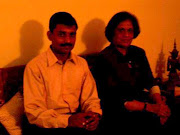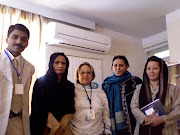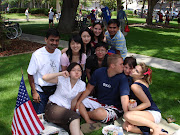Will politics interrupted since January 11, 2007 by Emergency Rule be finally giving way to resumption of democratic politics, come parliament election day on December 29, 2008.
Intellectuals, constitutional experts and journalists will continue to argue with points and counterpoints about the sagacity of declaring emergency under pressure from the army. These two years, a caretaker government administered the country backed by the army. The performance of the government should certainly be audited by the public. It will be a lesson for all, including the armed forces, to learn from.
True, there were shortcomings. Corruption shifted from one interest group to another. Too many experiments were made with lofty ideas, including Army Chief General Moeen U. Ahmed’s vision of “Democracy with Bangladeshi Characteristics”. The idea did not hurt the nation. But nothing went to the purgatorial depth of the BNP-JEI rule of 2001-2006.
Those in Bangladesh now criticizing the “January 11” emergency may like to revisit the situation prevailing then. Prime Minister Khaleda Zia’s most notorious and corrupt older son, Tareque Rehman Zia had tried to initiate a military coup through his army friend and a captive president. It was thanks to General Moeen and his colleagues that disaster was averted. For this one single act, the Bangladeshi people should thank them.
The political divide was also moving fast towards a major bloodletting which was unlikely to remain confined to Dhaka. The country is yet to come out of the trauma of the killing fields of 1971. While the Pakistani army is not there now, their old murderous squads like the AL Badr, the Al Shams and the Razakars have revived to great strength in the form of Bangladesh Jamaat-e-Islami (BJEI), IOJ (Amini) and a host of others including terrorist organizations like the Jamatul Mujahidin Bangladesh (JMB) and the Harkat-ul-Jihal al-Islami (HUJI).
For a variety of reasons including international warnings especially from UN Secretary General, the armed forces desisted from instituting a martial law government. That would have been a disaster. Someday, perhaps, General Moeen, Lt. General (Retd.) Masududdin Choudhury and some other officers who made very critical decisions at that time, would come out on record on their thinking. It would go a long way to help the armed forces officers in the future to introspect about action such as military rule. One may, however, be assured that the military will never be too far away. In a democracy this is bad news. But then the politicians who sit in Jatiyo Sangshad (Parliament) must conduct themselves sensibly. They cannot rape and loot the country and expect others to look away.
Notwithstanding the fact that the military-backed caretaker government could not finally achieve what they had set out to do with the political class, the politicians as a whole should have come out greatly chastised from the events of the last two years. Some of them have been convicted on corruption and other crimes, some are being still tried in courts, some others are absconding, and a number of them are contesting the elections after a close shave with the law under emergency rule. There was wheeling and dealing, political adjustments and fall outs, threats of blackmail not to contest the elections unless the government agreed to certain demands from particular political parties. In the end a patchwork arrangement was arrived at to lift emergency to allow free and fair elections with observers from the European Union, the USA and the UK monitoring the polls.
A word about foreign observers. With all their noble intentions, they have never really been able to reach the real trouble spots and rural areas where the majority of the votes are cast. The 2001 elections were rigged with impunity by the BNP-JEI led 4-party alliance. Large sections of minorities were not allowed to participate in the polling. The army and most other security agencies did not give a damn about who was observing the elections. But the foreign observers certified the elections as free and fair. The foreign observers apparently had a political strategy to work with the BNP and the JEI for reasons not really a secret. The Americans were looking for moderate Islamic political parties across the world to support, to wash off the opprobrium they had earned of being anti-Islamic in the Islamic world. The 2001 political situation in Bangladesh does not obtain at the end of 2008.
Nevertheless, lessons of the past must not be forgotten. Gen. Moeen would recall the message sent from the Army GHQ Dhaka, to the GOC 24 Inf. Division, Chittagong, directing to provide all assistance to the JEI leader and candidate Shahjahan Choudhury. When all mobile telephones were shut down officially a few days before the 2001 elections, Choudhury, who is in jail now, was provided with a communication set from the army’s holding to help him to keep in touch with his murderous hoodlums.
The Chief Advisor and Advisors (Cabinet Ministers) of the caretaker government, as per the constitution, are supposed to be politically neutral persons or, rather, apolitical persons. Except for a few, most were anything but apolitical. Maj. Gen. (Retd.) M.A.Matin, Advisor to the Home (Interior) Ministry exposed himself as a hardcore Jamaati and of an ideological persuasion that could very well resonate with the ideology of the banned terrorist organizations like the JMB and the HUJI.
Looking from a traditional point of view, the parliamentary elections would be fought mainly between the right wing BNP and the left-of-center Awami League (AL) which still enjoys secular credentials among Bangladesh watchers. In the 1996 elections, however, the AL came to an understanding with the JEI. This was broken in 2001. But the AL President Sheikh Hasina Wajed again made an attempt to forge an alliance with an Islamic group which preaches everything that the AL is supposed to be against including women leadership.
It is a serious concern that regressive and obscurantist Islamic groups are becoming more important in electoral politics in Bangladesh. Nomination of the number of minority candidates by the political parties for the December 29 elections fell far short of their population ratio. A number of Bangladeshi newspapers pointed this out. There is no time to review this. From all indications, fielding as few minority candidates as possible even by the AL was a hard, conscious decision from the top of the party. About 10 percent to 12 percent population of Bangladesh are, therefore, becoming irrelevant. Will they also become dispensable, eventually?
A number of linked developments need mention in terms of Bangladesh’s politics. Self-styled Mufti, Amini, head of the faction of the Islamic Oikyo Jote (IOJ) aligned with the BNP-JEI combine could stop the construction of Baul sculptures near the Dhaka International airport because idols are “un-Islamic”. The government bowed to Mufti Amini’s threat. An effort was made a couple of months ago by a section within the Home Ministry to give the banned terrorist group HUJI a moderate political face.
It is still being talked that the BNP has 74 sure constituencies, and the AL about 33. This position is unlikely to hold any longer. Both the BNP and the AL have been weakened significantly, but the BNP more so. It has also suffered desertions. It, however, still holds the numbers and political profile to keep the JEI in alliance with it.
The JEI suffered the least in the anti-corruption drive by the caretaker government. To remain with the BNP is an astute, long-term, strategic decision. The BNP is losing, centrist heavy weights like Abdul Mannan Bhuyian and Col. (Retd) Oli Ahmed among others. This gives the JEI the space to grow within the BNP rightists and Islamists. From here on, one would expect to see the original BNP wither slowly and the JEI to grow within the BNP. In the next 10 years, the JEI should be expected to take control of the Khaleda Zia controlled JEI.
Finally, what has happened to the Freedom Fighters? They were given some hope by the Army and the AL. But as expected, they have been dumped. The Freedom Fighters (Mukti Joddhas) represent something that does not fit even into the paradigm of the AL top leadership. It is the Islamist rightists the AL wants to win over.
The December 29, 2008 Jatiyo Sangshad appears to have acquired a lot of issues that will come into play in Bangladesh’s politics soon after a new elected government comes into place. It is difficult to speculate anything definitely at the moment. But some issues not really visible have been raised in this commentary. They are of utmost importance.
Footnote: Bangladesh politics and elections are moving towards a situation where moderate and humanist Islam and secularism are being pushed aside to ameliorate intolerant Islam. As the JEI leaders had stated a few years ago their strength cannot be measured by the number of seats they have in Parliament. It can only be fathomed by the growth of their ideology among the people of Bangladesh. Time is on the side of the JEI and the opponents of liberation unless those who style themselves as secular political leaders wake up soon.












No comments:
Post a Comment